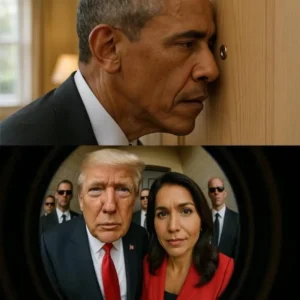US Defense Secretary Pete Hegseth is in serious trouble after a series of scandals involving the leak of sensitive military information via the Signal messaging app and internal turmoil at the Pentagon. Despite President Donald Trump’s strong support, pressure from Congress, the media and within the Department of Defense is making his future uncertain.
1. Signal Scandal – The Trigger of Crisis

The case began when Pete Hegseth allegedly used the messaging app Signal to share plans to attack Houthi forces in Yemen in a private chat group that included his wife, brother, and several other close associates, as well as his personal lawyer and Pentagon associates. The chat group, called “Defense Team Huddle,” was created in January 2025, before Hegseth was officially confirmed as US Secretary of Defense (Giselle Ruhiyyih Ewing, Politico, April 22, 2025) .
The information shared included details of the flight schedules of F/A-18 Hornet fighters, targets, and attack sequences, prompting many security experts to warn that this was a dangerous act that could seriously damage national security and undermine the trust of allies. The use of personal phones instead of government devices to access this application further increased the risk of leaking classified information. In addition, the incident became more serious when the chat group included people who were not authorized to access classified information, such as Hegseth’s wife and brother, which is not in accordance with US national security regulations. A related incident was when National Security Advisor Mike Waltz accidentally added journalist Jeffrey Goldberg – Editor-in-Chief of The Atlantic magazine to another chat group ( this group included Secretary of Defense Pete Hegseth, Vice President JD Vance, Secretary of State Marco Rubio, Director of National Intelligence Tulsi Gabbard and US National Security Advisor Mike Walt. ) , causing sensitive information to be widely leaked to the media (Cecelia Smith-Schoenwalder, April 21, 2025). In response to the above incident, the media raised the question of whether this was a security breach or a lack of responsibility by the current US authorities.
2. Reaction from President Trump and the White House
Despite intense pressure from the media and lawmakers, Pete Hegseth has received a strong defense from President Donald Trump. The White House has insisted that no classified information was shared on Signal and stressed that the President “has full confidence in the Secretary of Defense’s leadership.” White House press secretary Karoline Leavitt also said that President Trump values Hegseth’s loyalty and ability to execute his agenda. “Criticism from the media and political opponents is nothing more than an attempt to undermine a loyal and capable man,” she added .
President Donald Trump (left) and Defense Secretary Pete Hegseth listen during an event in the Oval Office of the White House in Washington on March 21, 2025. AP
In the wake of the new revelations about the Signal chat group, Hegseth blasted the “fake news” media, anonymous sources and “con artists,” who he said were fabricating a new narrative to distract from his “Make America Great Again” MAGA revolution at the U.S. military headquarters to “put the Pentagon back in the hands of the warriors.” Looking directly into the camera, as he did on “Fox and Friends,” he complained, “That’s what the media does. They take anonymous sources, disgruntled former employees and try to destroy people and ruin their reputations.”
It’s also typical Trump: deflecting a damaging scandal by creating a new war with MAGA-hated forces and blaming any criticism on deep-seated forces working against the revolution. “Pete’s doing a great job. Everybody’s happy with him,” Trump said at the annual White House Easter Egg Roll on April 21, 2025 , and “It’s just fake news. They’re just making it up. I guess disgruntled employees. He was brought in to get rid of a lot of bad people, and that’s what he’s doing. You don’t always make friends when you do that.”
Trump’s support for Hegseth is said to stem from his absolute loyalty to the President and his willingness to implement controversial policies without hesitation. Hegseth is a hard-line conservative, a strong supporter of Trump’s “America First” program and regularly appears on media channels friendly to the President to defend the administration’s policies. However, “the benefits do not outweigh the disadvantages”, Trump’s continued defense of Hegseth also increases pressure from the opposition and the public, creating a deep political controversy.
3. Pressure from opposing forces, Congress and the media, and internal conflicts within the Pentagon
The reaction from Congress has been particularly harsh. “Pete Hegseth must go immediately,” wrote the chairman of the Minnesota Democratic Party. Democratic politicians in Hegseth’s home state of Minnesota have been among those calling for his resignation or dismissal. Many lawmakers, especially Democrats, have called for an independent investigation and even called for Hegseth to be fired, arguing that he is no longer qualified to serve as Secretary of Defense. Representative Adam Smith, chairman of the House Armed Services Committee, stressed that if the allegations are true, Hegseth cannot continue to lead the Pentagon (Tara Copp, April 23, 2025)
“It is unacceptable for a secretary of defense to use unsecured communications channels to share sensitive information,” said Rep. Don Beyer. “This action demonstrates a dangerous disregard for national security and a lack of competence in the management of classified information , ” Beyer added .
Senator Chuck Schumer also voiced harsh criticism, accusing Hegseth of endangering the lives of American soldiers and calling for him to be held accountable. National security experts and watchdog groups have also expressed deep concerns about the use of unsecured communication channels to exchange military information, warning that it could set a dangerous precedent for national security.
Florida Republican Rep. Carlos Giménez told CNN that the new allegations against Hegseth “should be a lesson to everyone” in the administration. “A lot of federal agencies use Signal because it’s supposed to be encrypted, it’s very secure. The fact that these things are being leaked now calls into question how secure Signal really is,” Giménez said. He did not comment on Hegseth’s fate, however. Sen. Tammy Duckworth, an Iraq War veteran who was seriously wounded in combat in 2004, said Hegseth “should resign in disgrace” (The Economic Times, April 21, 2025).
The media has also been ramping up pressure on Hegseth, with numerous investigative and op-ed pieces criticizing his management of the Pentagon. Major news outlets such as CNN, The New York Times and The Washington Post have all published detailed stories about scandals and internal turmoil under Hegseth.
In addition to facing allegations of leaking information, Hegseth has also been criticized for creating a chaotic and toxic work environment at the Pentagon. He has made many controversial personnel changes, fired or forced many senior officials to resign, creating a tense and divisive working atmosphere. Many sources said that since taking office last November, Hegseth has conducted a personnel purge, fired or forced many senior officials to resign.
According to John Ullyot, a former Pentagon spokesman, the officials who were fired were loyal and competent, but were seen by Hegseth and his associates as “not loyal enough” to Trump’s agenda. Ullyot described the atmosphere at the Pentagon under Hegseth as “near collapse,” with employees operating in a state of fear and suspicion of one another. An anonymous former defense official described the situation as “a mess,” criticizing Hegseth’s lack of leadership and creating deep dissension within the ranks. The appointment of inexperienced people to key positions also weakened the Pentagon’s ability to operate, affecting the effectiveness of the US military.
4. International response: Widespread concerns and potential diplomatic fallout
The scandal surrounding US Defense Secretary Pete Hegseth’s sharing of sensitive military information via the Signal app has not only shocked the US internally, but also raised a wave of deep concern from the international community – especially traditional allies and strategic rivals of the United States.
Close US allies in the Middle East and Europe, including the UK, Saudi Arabia and NATO members, are said to be watching the incident closely, worried that leaks of operational plans could erode trust between the parties. With the US leading the campaign against Houthi forces in Yemen – a common threat to regional stability – any lapse in security could threaten operational coordination and long-term strategic trust. “ We need a disciplined and trustworthy America,” said a European diplomat, who spoke on condition of anonymity. “No one wants to share strategies if there is a risk of leaks from the top.”
Meanwhile, America’s strategic rivals such as Russia and China are expected to take advantage of this scandal to attack the Washington administration’s reputation. Although there has been no official response from Moscow or Beijing, many international political analysts believe that this will be a “golden opportunity” for these countries to reaffirm their arguments about the instability and inconsistency in the US political-military system, thereby reducing the global influence of the United States, especially in prolonged geopolitical struggles such as in Ukraine or the East Sea.
International organizations and cybersecurity experts have also expressed deep concerns about the use of non-standardized commercial messaging platforms by senior officials in the government, especially for highly confidential and strategic discussions. Mr. Hegseth’s use of Signal – despite its end-to-end encryption – to share campaign information with family members who had no access was considered a serious security breach that called for an urgent review of information security procedures within the US defense establishment.
Finally, many international politicians and scholars believe that the incident is a clear manifestation of the instability and polarization in American politics, which threatens to affect the country’s leadership role in international coordination efforts, from resolving the Iran nuclear crisis, the Russia-Ukraine war, to the strategy to deal with the rise of China. A scholar from the Geneva Institute of International Relations commented: “When the position of the locomotive is shaken, the cars behind are affected. America’s allies need certainty – not unexpected shocks like this.”
Although other countries have not yet made any official public response, the scandal involving Minister Hegseth is being seen as a warning signal about challenges in US security and diplomacy management, which could negatively impact the US’s reputation and effectiveness of international cooperation in the coming time .
5. Uncertain future: Fire or keep Pete Heghseth ?
With criticism from Congress, the media, and within the Department of Defense, Pete Hegseth’s future is in doubt. While President Trump has maintained his support , multiple sources say the White House is quietly looking for a replacement, signaling the end of his short, tumultuous tenure .
Layoff scenario: Mandatory or strategic?
If investigations—from within the Pentagon to the House Intelligence Committee—find that Hegseth committed a serious breach of confidentiality, especially if his actions endangered the lives of American troops or exposed military plans to adversaries, his removal would be almost inevitable. In that case, keeping him on might no longer be a viable political option.

The Withholding Scenario: Loyalty in Exchange for Risk
However, if Trump is determined to keep Hegseth, despite the criticism and the risk of losing his reputation, this will be a strong demonstration of the principle of “loyalty over ability” – an unmistakable feature of his governing style since his first term.
The problem is that such loyalty could come at a high cost. In addition to discontent within the Defense Department—where many generals and career officials have publicly and privately criticized Hegseth’s “undisciplined” conduct—keeping him in place could erode the confidence of international allies in the professionalism and stability of the U.S. military. For a country whose international role is tied to strategic credibility and military discipline, that is a risk not to be taken lightly.
Not a simple choice
Keeping or firing is not an easy option. The price of loyalty can be a long-term strategic loss; while the price of decisiveness is admitting mistakes – something that rarely appears in Donald Trump’s political vocabulary.
Pete Hegseth’s future is therefore not only a personal story of a Secretary facing a crisis , it is a symbol of how an administration faces a mistake: choosing to fix it or continue to defend and justify . And further, it will partly shape the image of D. Trump in American political history – a leader who knows when to stop, or someone who is willing to take risks because of his emotional choices.
The Signal scandal has created a serious crisis for US Secretary of Defense Pete Hegseth. Despite strong support from President Trump, he is facing increasing pressure from Congress, the media, and within the Pentagon. Hegseth’s future as Secretary of Defense remains a big question mark, and only time will tell whether he will retain the position or be forced to leave in the current volatile political climate.






